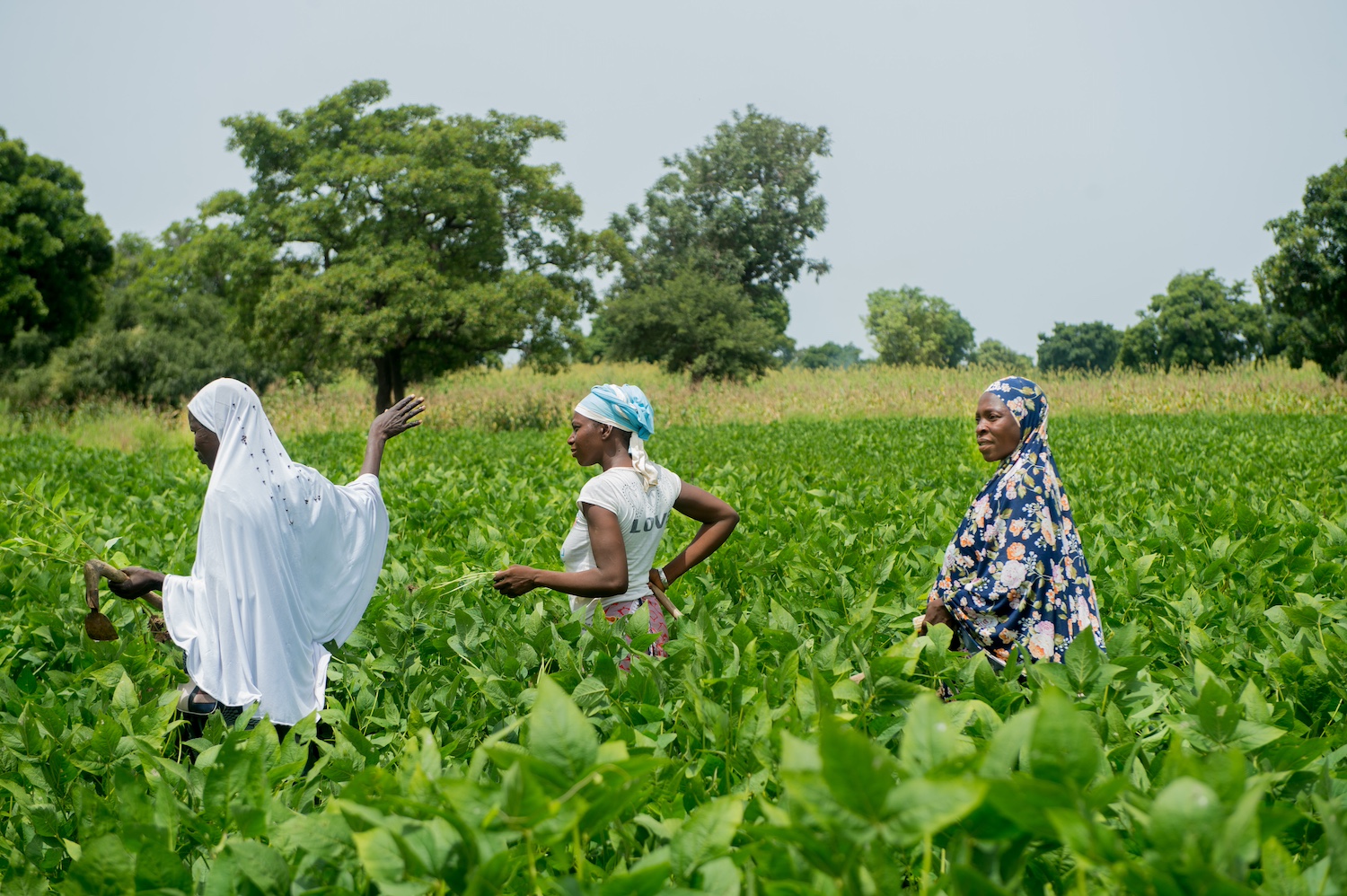What is TIFR & Where Do Women Fit in?
The Tiligre Initiative for Farmer’s Resilience (TIFR) is a USAID-funded project launched in July 2023 and implemented by Nuru Burkina Faso in the South Central and Central Plateau Regions of Burkina Faso. In a region where gender disparities remain a barrier to economic development, TIFR is dedicated to fostering economic growth and building self-reliance among smallholder farmers, enhancing household incomes, and diversifying livelihoods through cooperative efforts. By championing sustainable agricultural practices and effective post-harvest management, TIFR is equipping communities with the essential tools and resources for long-term economic stability.
A key component of TIFR is commitment to women’s empowerment. Understanding the profound impact of poverty and food insecurity on women, TIFR targets women throughout its activities. Women’s active involvement is vital to TIFR achieving its goals, as both families and communities benefit when women are included in development efforts. By focusing on women’s inclusion throughout the project, TIFR seeks to ensure that women have equal access to resources, training, and leadership opportunities in compliance with the USAID gender equality standards (2024).
Through these inclusive approaches, TIFR equips women to lead in agricultural production and promotes their inclusion in cooperative membership, paving the way for improved household nutrition and economic resilience. Women emerge as pivotal agents of change, playing a crucial role in cultivating resilient and flourishing farming communities.
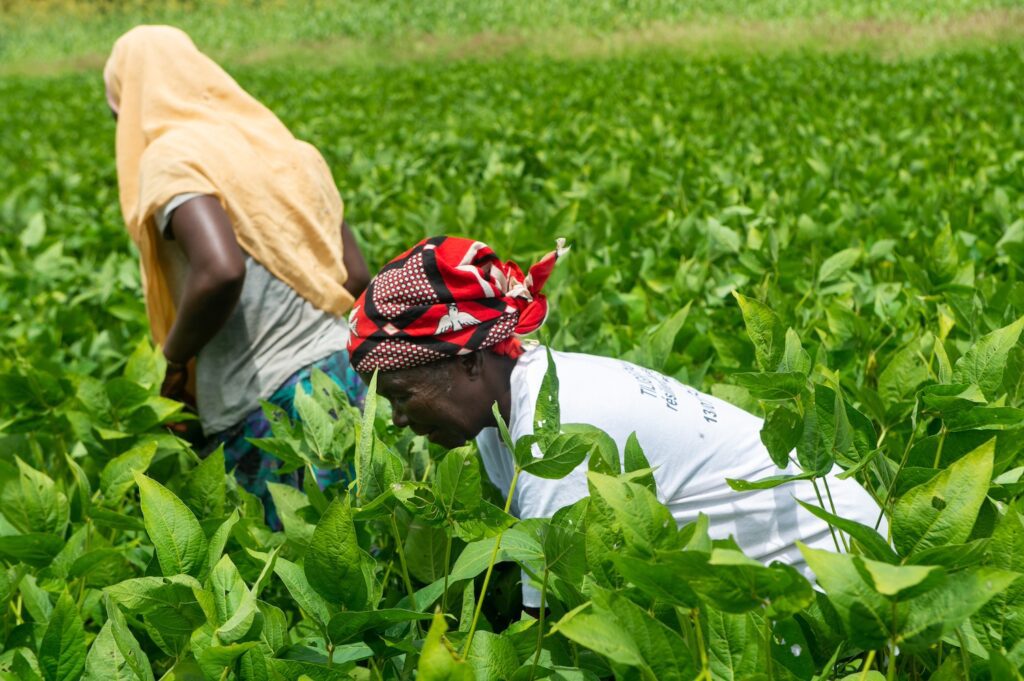
Woman Farmer, Nuru Burkina Faso, 2024
Why Women?
Challenges and Injustices that Women Face
Women worldwide face disproportionate challenges related to extreme poverty and economic inequality. According to the United Nations, extreme poverty is defined as living below the minimum global poverty line of $2.15 per day. Despite progress in reducing extreme poverty, gender disparities remain stark. In 2024, nearly 10 percent of women still lived in households experiencing extreme poverty, compared to just over nine percent of men. This translates to 22 million more women than men living in extreme poverty, with the most significant gaps in regions like Sub-Saharan Africa, where Nuru works (UN Women, 2024).
The country of Burkina Faso faces different challenges in achieving gender equality, particularly in the agricultural sector. Although women contribute to 70 percent of the food production, they own less than eight 8 percent of the land due to cultural norms surrounding land ownership (UNCCD). This lack of secure land access has far-reaching consequences for productivity and development. Furthermore, women in rural areas often balance unpaid care responsibilities with agricultural work, limiting their ability to earn income through agriculture. This burden impacts their productivity and reduces their capacity to participate fully in the agricultural workforce, perpetuating cycles of poverty and food insecurity (UN Women, 2024).
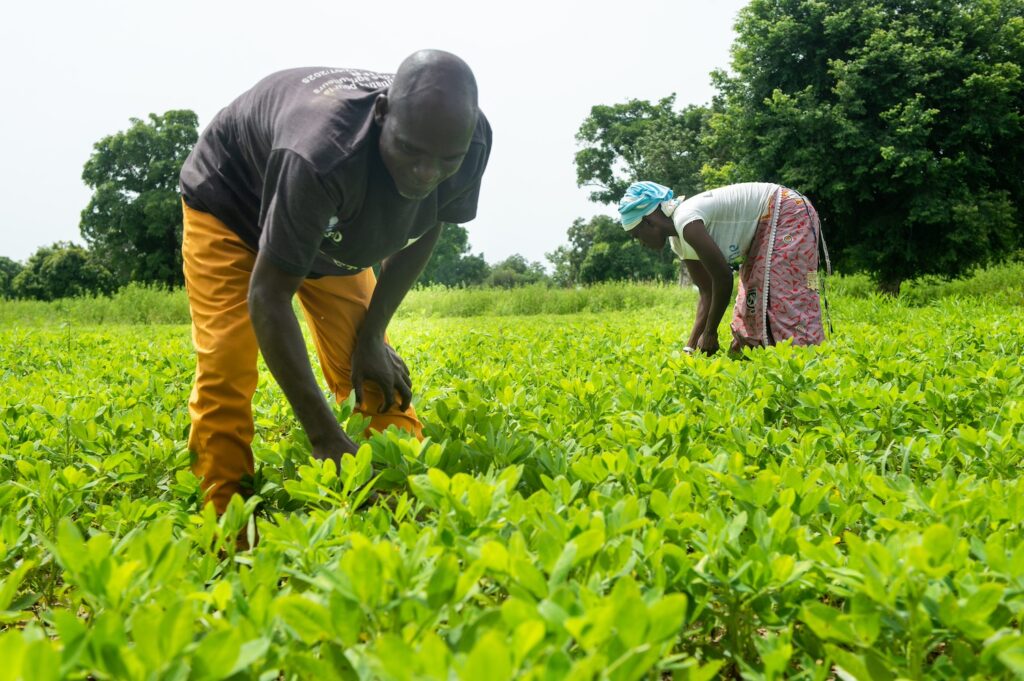
Farmers working together in Burkina Faso, 2024
An Investment in Women is an Investment in Entire Communities
Investing in women is an impact multiplier in economic development. According to USAID’s 2023 Gender Equality and Women’s Empowerment Policy, communities prosper when women have equal access to resources and opportunities. Promoting gender equality leads to faster and more inclusive economic growth, increased agricultural productivity, and improved health and food security, not just for women, but for their families and their communities as well. The 2024 UN Women’s World Survey on the Role of Women in Development shows that empowering women enhances productivity and strengthens community resilience and stability.
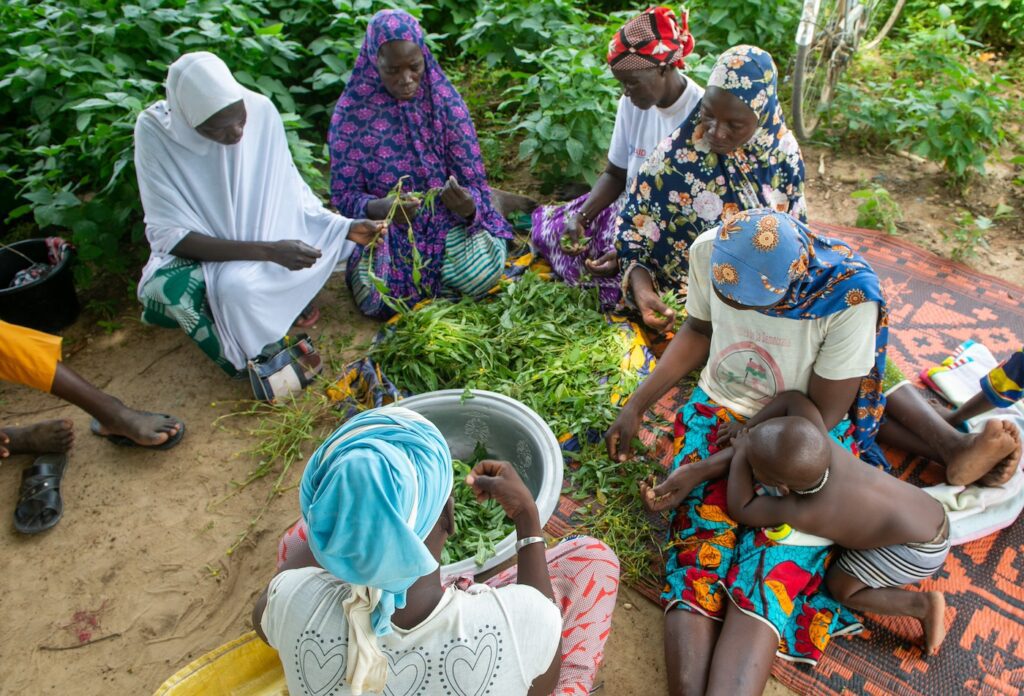
Farmers processing harvest, Nuru Burkina Faso, 2024
For this reason, Nuru adopts a women-first approach in agricultural communities, which is crucial for achieving gender equality and providing women with the resources they need to succeed. This approach focuses on prioritizing inclusivity in all actions and initiatives. For example, initiatives like those undertaken by TIFR support women’s access to equal opportunities to succeed and thrive. Nuru Burkina Faso ensures that at least one woman is registered to participate in farming activities in every household where interventions are being implemented.
By providing women equal access to resources, training, and leadership opportunities, TIFR equips women to be active change-makers. This approach fosters an environment where women can thrive, leading to stronger, more resilient communities. Women in TIFR are not just participants, but leaders, driving economic growth and creating sustainable pathways out of poverty for their families and comunities.
How is TIFR engaging women?
Nuru Burkina Faso began using the Women’s Economic Empowerment in Agriculture Index (WEAI) suite tool in 2022. Co-developed by the International Food Policy Research Institute (IFPRI) and USAID, these tools provide a robust framework to evaluate women’s empowerment across five key domains:
- Production
- Resources
- Income
- Leadership
- Time
In November 2023, Nuru Burkina Faso piloted the Abbreviated WEAI (A-WEAI) tool to better understand the barriers women face within the cooperatives and communities where TIFR activities are implemented. The insight from the survey directly informed TIFR’s approach, leading to targeted interventions such as:
- Incorporating Gender Awareness in Training
- Promoting Women’s Leadership in Cooperatives
- Expanding Women’s Role in Value Chains
- Advocating for Women’s Membership in Cooperatives
- Incorporating Gender Awareness in Training
During training sessions, TIFR integrates discussions on the importance of women’s inclusion in programs, activities, and decision-making. A key strategy has involved engaging women’s husbands and other male participants in the training sessions to raise awareness and promote understanding of gender equality issues. This approach has supported incredible results; women’s participation in training activities reached 79 percent since the implementation of the TIFR activities, surpassing initial targets. These sessions included Training of Trainers (ToT), field visits, demonstration exercises, and technical workshops on climate-smart agriculture and soil health.
Promoting Women’s Leadership in Cooperatives
TIFR fosters an environment where women are encouraged to take on leadership roles. Women’s participation in TIFR activities has surpassed initial projections. The baseline target was set at 600 female participants, and TIFR now has successfully engaged 943 women, significantly exceeding the expected levels of women’s participation. Women’s involvement in leadership and cooperative activities has equipped them to make critical decisions and contribute actively to their families and communities.
Expanding Women’s Roles in Value Chains
To expand women’s participation beyond traditional farming roles, TIFR has improved women’s access to market processes, including aggregation, commercialization, and sales. By providing access to a buyer’s database that contains up-to-date information about product prices from the Ouagadougou market as well as local markets, women have gained better negotiating power, enabling them to secure better prices for their produce, particularly groundnuts.
In addition, TIFR addressed mobility restrictions by bringing vendors directly to women, removing logistical barriers that often limit their market participation. Following the 2023 agricultural season, and as a result of TIFR’s ongoing support, women successfully participated in the commercialization and sales processes, generating a total revenue of $79,720 USD, an achievement that exceeded the initial target of $50,000 USD by 59%.

Woman farmer selling tofu skewers, Nuru Burkina Faso, 2024
Advocating for Women’s Membership in Cooperatives
TIFR encourages cooperative leaders to support and motivate women to join cooperatives. A key strategy has been expanding household-level financial training, which includes men, and raising awareness about gender equality. This inclusive approach has enhanced women’s skills in areas traditionally dominated by men, increasing both their skillsets as well as their access to decision-making opportunities, thus increasing their standing in their households and communities.
Germaine: TIFR’s Impact on One Woman’s Life
Germaine is the president of a women’s cooperative supported by TIFR in the South Central Plateau Region of Burkina Faso. Through TIFR’s support, Germaine and her fellow cooperative members have learned how to properly space their plants, how to source high-yielding and good quality seeds, and they have learned the importance of diversifying crops for increased income and soil health. Germaine is also grateful for TIFR’s capacity strengthening activities that have equipped the cooperative to structure itself more effectively and to better achieve its goals.
“Being president of the […] cooperative has changed me. Before, I was only involved in basic activities, but now I feel a greater responsibility. I’m working to strengthen the organization of our cooperative, encouraging the participation of all members. We have launched initiatives to improve our farming practices, diversify our activities, and better market our products. I’m also striving to build partnerships with local organizations and institutions to benefit from training and funding, in order to make our cooperative more resilient and prosperous. I’ve become a source of inspiration for other women who didn’t dare take on leadership roles. Today, I see women around me who believe in their abilities, and that gives me even more motivation.” -Germaine
Germaine, like other women in rural Burkina Faso, has faced challenges in her leadership role, as the community has traditionally assumed that leadership roles should be reserved for men. Germaine notes, “I have sometimes had to overcome prejudice, even within the cooperative, and show determination to prove that I can be a competent and respected leader. The responsibilities of president also demand time and energy, which is not always easy to reconcile with my family commitments. I sometimes face criticism or doubts about my ability to juggle these two aspects of my life, but I persevere. The support of cooperative members, especially other women, has been essential in overcoming these obstacles.”
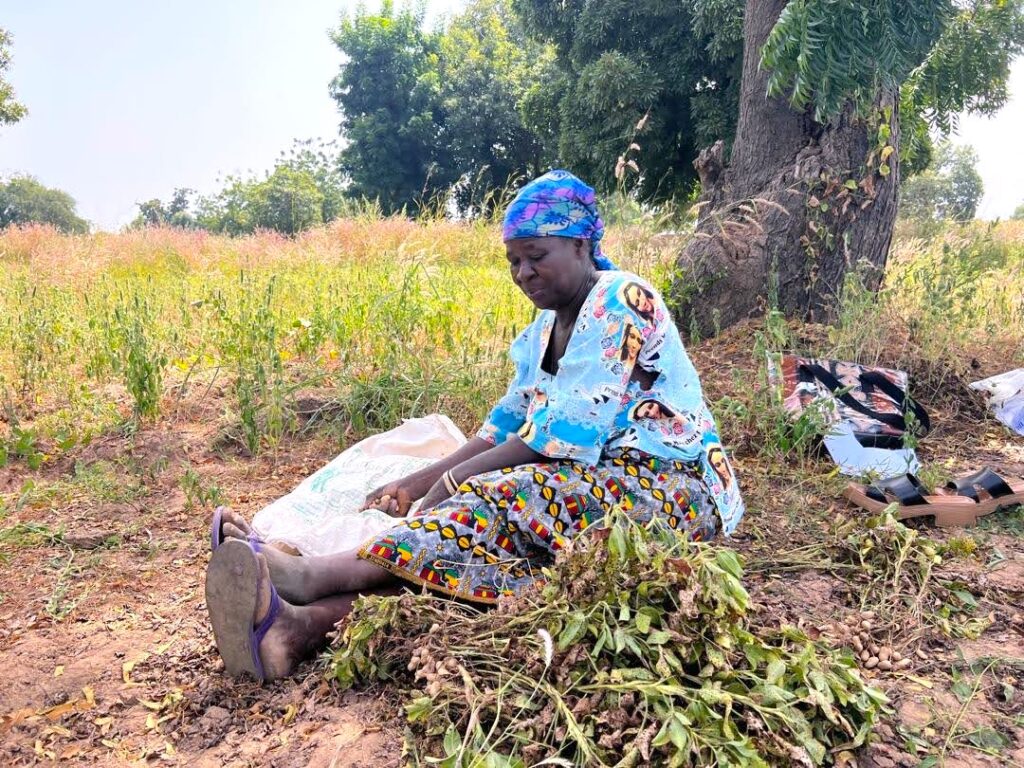
Germaine sorts groundnuts, 2024
When women like Germaine gain access to leadership roles, the difference isn’t just seen in their lives, but rather there is echo of change throughout the cooperative and the community. Germaine is not merely surviving, but she is planning for the future, filled with goals and dreams for both herself and her cooperative. She says, “My ambition is to strengthen the skills of each member, so that they can become more involved and contribute to the development of our organization. My dream is to see the […] cooperative become a model of success in our region, in terms of financial autonomy and sustainable development. My goal is to diversify our activities, particularly in agriculture and the processing of local products, to ensure a stable income for members and enable them to better support their families. I also hope that other women in the region will have the courage to take on leadership roles and actively contribute to the development of our community.”
Speaking highly of the TIFR project and the opportunities created because of it, TIFR describes the support as “invaluable.” She notes that “thanks to the support of [TIFR] and our determination, I am convinced that we can achieve great things. We’re moving forward together, with the hope and determination to build a better future.” Germaine’s story offers a glimpse into the challenges, perseverance, and hopefulness reflected in the lives of the more than 900 women that TIFR has impacted as of today.
What is next for TIFR?
The Preliminary findings from the A-WEAI survey reveal significant disparities in decision-making between men and women at the household level. By leveraging these insights, TIFR will continue monitoring the survey results to evaluate TIFR’s impact and adapt strategies to address gender gaps effectively. As a next step, the A-WEAI survey will be conducted once again to track progress, identify challenges, and refine interventions to ensure women’s empowerment remains at the forefront of the TIFR activities.
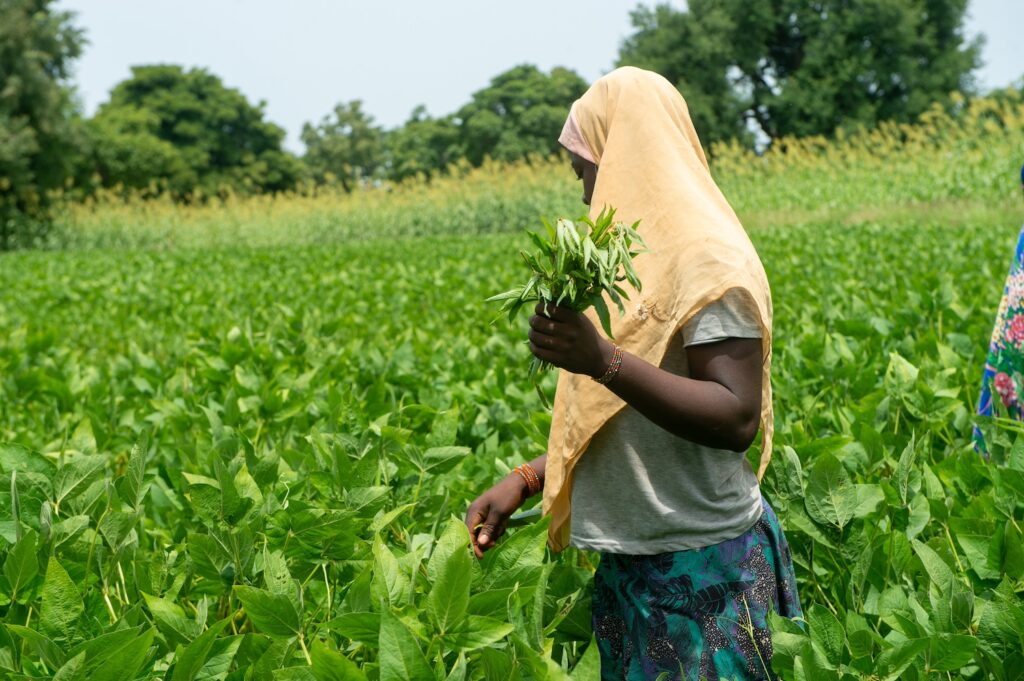
Beyond the survey, Nuru Burkina Faso is committed to its broader mission of building resilience by strengthening farmer agribusiness through the promotion of sustainable and inclusive approaches, resulting in the implementation of the TIFR activities. Nuru Burkina Faso aims to strengthen social cohesion and enhance community resilience against vulnerabilities that could be exploited by growing conflict and instabilities through the following:
- increasing household incomes
- diversifying livelihoods
- creating local solutions
By incorporating gender mainstreaming at each level of the TIFR activities, the project is already witnessing women’s transformative leadership in agriculture. Contributing to women’s economic empowerment is essential to achieving gender equality (UN Women). In fact, wherever women have more say in production and income-generating activities, they tend to invest more in health, education, and welfare in their families, which eventually leads to a stronger and more resilient community. With USAID support, Nuru Burkina Faso continues to strengthen women’s leadership through TIFR, enabling them to drive sustainable development across generations.


